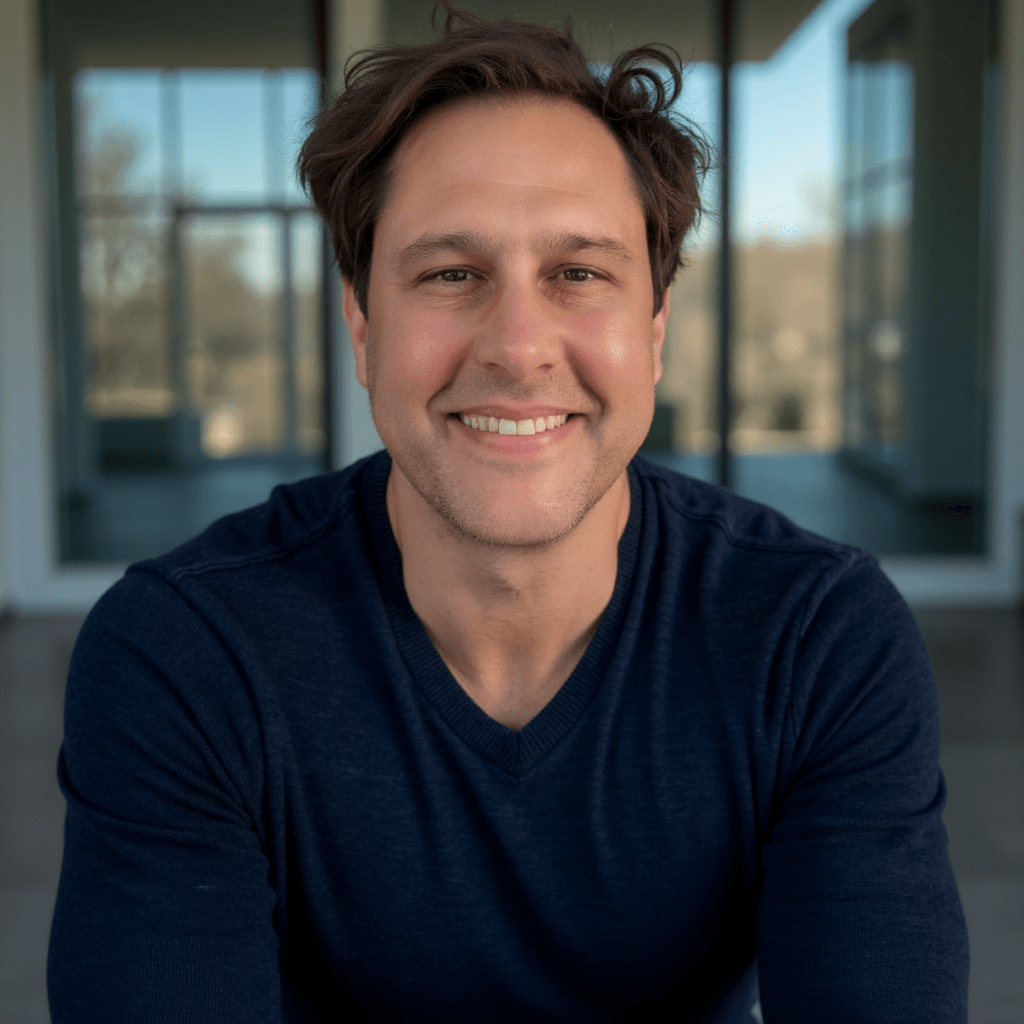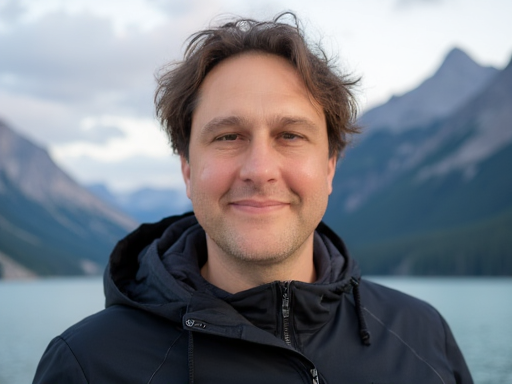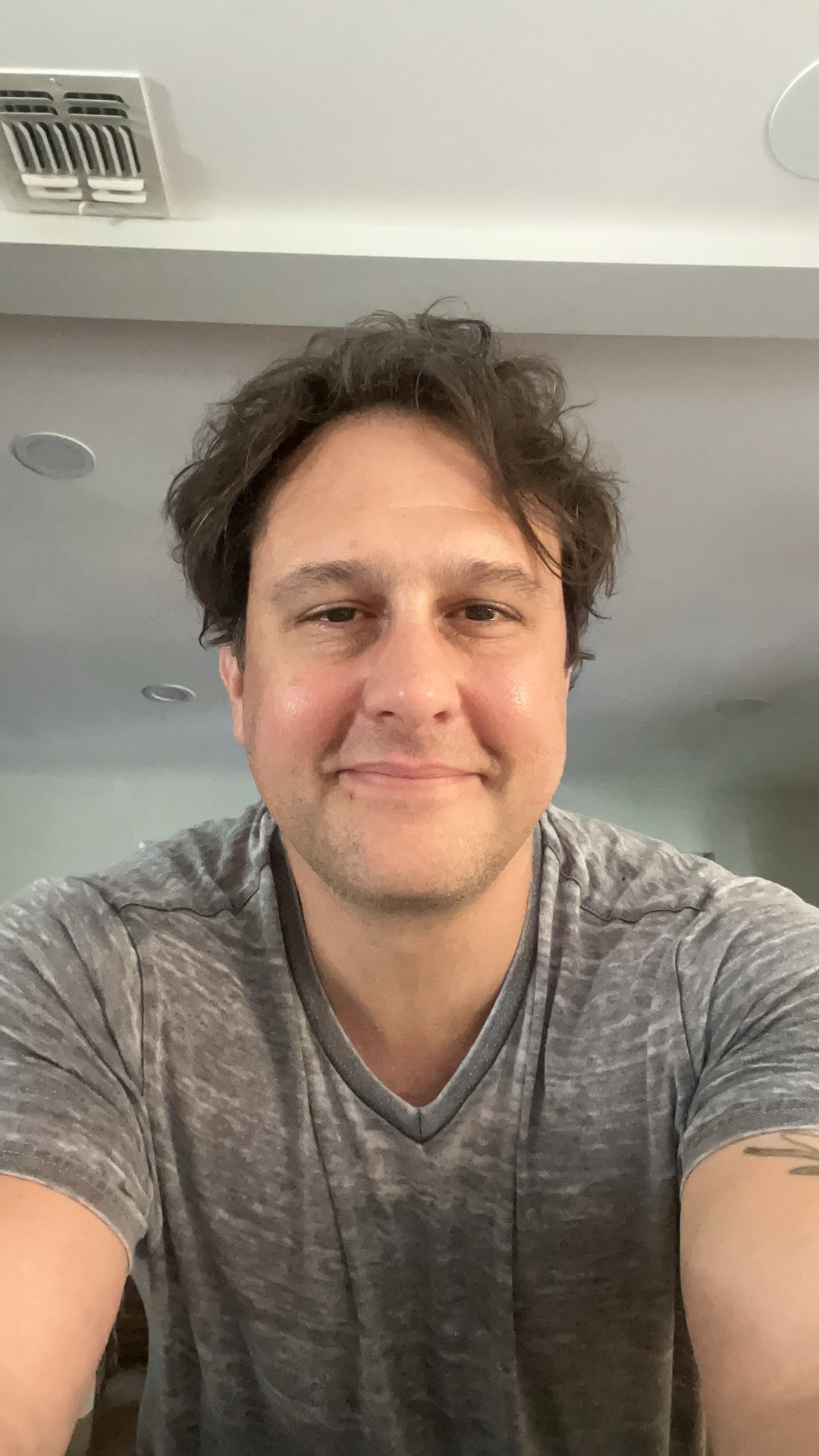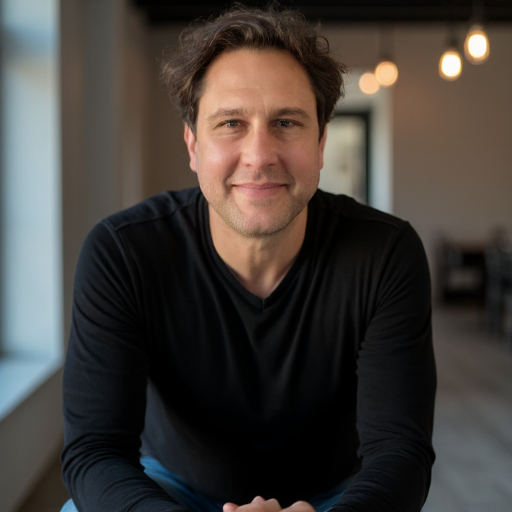We caught up with the brilliant and insightful Daniel Powers a few weeks ago and have shared our conversation below.
Hi Daniel, thanks for joining us today. How did you come up with the idea for your business?
Back in 2006, I was teaching music lessons out of a cramped 400 square foot room with maybe two chairs and a carpet that probably should’ve been condemned. Rent was \$900 a month, which felt enormous at the time because I had no real plan, just a guitar, some time, and this nagging belief that there had to be more to learning music than awkward weekly lessons and dusty method books.
What really started to bug me was this pattern I kept seeing. Kids would come in excited, bright-eyed, ready to learn, and within three months they were gone. Not because they weren’t interested, but because the whole thing felt disconnected. They’d show up, we’d talk about chords, they’d forget everything, rinse and repeat. Parents were paying. Kids were drifting. It was a revolving door.
At some point, I looked around and thought, “This system’s broken. This can’t be what music education is supposed to feel like.”
So the idea for Real Brave wasn’t a bolt of lightning. It was more like erosion, this slow grind of frustration and trial and error until something useful finally emerged. I started thinking, what if instead of trying to force kids to conform to this rigid structure, we built something that actually mirrored how people want to learn? What if we ditched the guilt-based practice charts and taught in a way that led somewhere real, like a stage, a performance, something tangible?
I started running with that. We added live performances. We made kids play with other kids. We told them, flat out, that they’d be playing a concert, even if they were terrified. And we coached them through it. Suddenly, they were sticking around. They were practicing without being told. Parents started filming everything. The studio grew.
The logic was simple. People stay with things that make them feel alive. And performing music, whether you’re a shy kid or a 40 year old hobbyist, does something to your nervous system. It wires in confidence. You can’t fake it. Once we saw that, we built the whole business around it.
Was it unique? Yeah, because no one else was willing to lean that hard into performance with beginners. Most lesson studios want the path of least resistance, keep it light, keep it safe, keep the tuition checks coming. We didn’t do that. We pushed people out of their comfort zones in a way that was still supportive. And that risk, that bet on transformation over convenience, is what really lit me up.
What started as a tiny idea in a rented room became a system, then a business, then a platform. And what keeps me doing this isn’t just music. It’s watching people change through it. That’s the good stuff.

Daniel, before we move on to more of these sorts of questions, can you take some time to bring our readers up to speed on you and what you do?
I’m Daniel Powers Jr, founder of Real Brave. I’ve been in the music world most of my life, first as a musician, then as a teacher, and eventually as someone who realized that none of this works unless you build a system people actually want to be a part of. I didn’t come into this with a five-year plan or a startup pitch deck. I started with a guitar, a tiny room, and a growing frustration with how stale and ineffective music education had become.
The industry is filled with two extremes. You’ve got the mom-and-pop studios that mean well but have zero infrastructure. Then you’ve got massive online platforms pumping out cookie-cutter content with no soul, no connection. I knew there had to be a middle ground. Something personal but scalable. Structured but flexible. So I built it.
Real Brave is a music education company, but that doesn’t quite cover it. What we do is help people become confident performers. Whether you’re a 7-year-old learning your first chords or a 45-year-old trying to get back into something you used to love, we’ve created a clear path that leads you from lesson one to the stage. And we do it using real teachers, real coaching, and a platform I built during the pandemic called PracticePad. It tracks your progress, delivers your assignments, stores custom videos your teacher made for you, and helps you stay accountable. It’s not just tech. It’s a tool that keeps you moving.
We’ve got in-person locations in New York and New Jersey, and we work with people online from all over the world. Our programs are built around something simple that most places avoid—performance. We push students to perform early and often. Not because they’re ready, but because that’s how they get ready. It rewires how they think about themselves. You don’t need a ten-year plan to feel like a musician. You need ten weeks of commitment, the right support, and a place that believes in you before you believe in yourself.
We serve everyone from total beginners to serious players, homeschool families, working professionals, and everyone in between. But what sets us apart is the culture. The energy. The obsession with helping people become the kind of person who walks on stage with their head up and says, “Yeah, I can do this.”
What am I proud of? That we didn’t quit. That when the world shut down, we built something better. That we kept our people—students, teachers, team—connected when everything else was falling apart. And now we’ve got a system that actually works.
If someone’s reading this and wondering what Real Brave is… it’s a place where people change. We teach music, sure. But really, we’re in the business of helping people show up for themselves. And I don’t know what else you’d want to build a brand around if not that.
We’d love to hear a story of resilience from your journey.
I’ll never forget March 12th, 2020. Milan shut down and my gut told me we were next. I had this heavy feeling in my chest that something was about to snap, and not in a poetic, world-shifting kind of way—more like, the rug is about to get yanked and no one’s wearing shoes.
I had spent nearly 20 years building this thing. Thousands of students, endless hours, more ideas than I can count. I ran Real Brave with three locations, a nonprofit, a staff of musicians, and systems that (mostly) worked. Sure, we had some insulation. Emergency plans. A fallback or two. But nothing prepares you for what happens when someone just turns the lights off and says “good luck.”
That day, I was driving on Harlem River Drive, late for a meeting with a banker about a cash flow loan for our newest location. I was on zero sleep and running on fumes, annoyed in traffic in my 2017 Jeep, which has a manual transmission because of course it does. The shutdown was coming the next day. I just needed to lock down the loan before everything went dark.
I checked the time. 2:46 PM. Maybe I could still make it. Then a patrol car flew by, sirens blaring. I caught the flash in my mirror, then watched a beat-up sedan make the worst possible move and slam into the cop… and then me. Sideswiped the rear fender, bounced off my wheel, caught air, came back down, all while I sat there like, what the hell just happened?
No license. No insurance. The kid just stared at me like I was the problem.
Meeting missed. Fender wrecked. Business in limbo. And I’m on the side of the road calling my team to tell them I’ll be offline while we try to get over a thousand in-person lessons online before the shutdown hits. That moment, standing there with police lights flashing and my car in pieces, was a weird kind of metaphor for what was about to happen.
I went home, rescheduled the loan meeting, checked in with every location, and tried to act like we weren’t staring down the barrel. That night, I got sick. Out of nowhere. Fever, brain fog, chest tightness. Woke up soaked through the sheets and completely useless. Couldn’t move. Couldn’t think. The next day I was supposed to help steer the ship. Instead, I was in bed hoping it wasn’t COVID.
While I slept through the worst of it, the team kept the business moving. I came to three days later and opened one eye to check in. We had lost half our customers.
Calls, emails, spreadsheets, customer service chaos, landlord voicemails, shutdown notices, news blaring in the background. It was a bloodbath. I froze our business transactions, stopped the bleeding where I could, and started working phones like I was on a political campaign. Everything I’d built was falling apart. I had just gone from running a multi-location, multi-million-dollar business to crawling through the debris trying to find something solid to hold onto.
But somewhere in that mess, I started to see what had to happen. Online lessons weren’t sticking for a lot of families. People were nervous. The energy was off. Students were logging into Google Meet and zoning out. Something had to shift.
So I went all in on the one thing we had that no one else did. PracticePad. Back in 2017, I had hacked together a digital assignment tracker with a developer overseas. It wasn’t sexy, but it worked. Teachers could upload notes, share videos, give feedback. Now, it needed to become the whole thing. Not just a side dish, the main course.
I hired a developer to rebuild it with live video functionality baked in. No more sending Zoom links or dealing with platforms we didn’t control. We got to work. Every day, I pushed announcements about our progress. We built new features. We added subscription access. We filmed hundreds of videos for our curriculum. We made it so teachers could share materials with each other. We turned it into something real.
And while all that was happening, the world burned. Politically. Economically. Culturally. We were stuck inside trying to hold onto some version of normal while everything around us kept shifting.
In that chaos, I stopped being just the guy running a local music school. I became something else. I didn’t plan it. I didn’t ask for it. But PracticePad started becoming its own thing. I was building an edtech company in the middle of a crisis.
And even as students started trickling back into our studios, even as restrictions eased, I realized something permanent had changed. Our staff—artists, parents, humans—wanted to work from home. Needed to. And the system we built let them. That opened up more freedom, more flexibility, and fewer of those “who’s going to pick up the kid from daycare” fire drills. We leaned into it.
Today, the in-person side of Real Brave runs without me. I don’t sit in the daily grind anymore. I don’t check the schedule or put out fires like I used to. I’m focused on the platform. We have students from all over the world learning on PracticePad. We have instructors creating content, sharing it, and building real communities.
It’s not perfect. We’re not back to pre-pandemic numbers yet. But I’m not looking back. The accident, the illness, the collapse—that whole stretch of darkness forced me to reimagine everything. It knocked me sideways and then shoved me forward. And somewhere in that wreckage, I built something better.
I’m not just a business owner anymore. I’m not just the guy who started a music school. I’m now the founder of something I never intended to build, and that’s the part that makes this story worth telling.

Any insights you can share with us about how you built up your social media presence?
The honest answer is—I didn’t start out trying to “build an audience.” I started out trying to tell the truth about what it’s like to build something from the ground up and not lose your mind in the process.
When I first dipped into social, it wasn’t polished. It wasn’t strategic. It was just me filming short videos from my car or my office, talking through what I was seeing inside the business. Sometimes I’d share wins. Sometimes I’d talk about mistakes. Sometimes I’d rant. But it was always real. That became the starting point.
Then came the performance clips. Real Brave students on stage, playing their hearts out—raw, unfiltered, no clickbait required. I posted those because I wanted people to see what actually happens when kids and adults are given permission to step into something bigger than themselves. It wasn’t about showing off. It was about showing up.
The podcast was next. We built it to document the process and bring some structure to the chaos. We had episodes where we argued about albums, broke down the music industry, told the story of musicians like Sixto Rodriguez or Robert Johnson, and did deep dives that made the whole thing feel bigger than a lesson studio. That helped shape the brand’s voice. It gave people something to follow, even if they weren’t taking lessons.
Eventually, we started leaning into short-form content. TikToks. Reels. Candid clips of me talking about business. About growth. About being the kind of person who doesn’t quit, even when the numbers don’t make sense. Some of those videos flopped. Some hit a nerve and racked up views. The only constant was consistency—just keep showing up and saying something that matters.
If someone’s just starting out on social, here’s what I’d say:
Don’t start with “strategy.” Start with honesty. Talk about what you’re doing. Share what’s working and what’s not. Let people into the messy parts. We’re all drowning in polished junk. What cuts through is the stuff that actually feels human.
Also—document, don’t produce. That’s something I had to learn. Most of what worked for me came from flipping the camera around in the moment and saying, “Here’s what I’m working on today.” Or “Here’s what just broke in the business.” Or “Here’s what’s keeping me up at night.” That kind of content doesn’t go viral overnight. But it builds something better. It builds trust.
The audience I have now didn’t come from hacks or templates. It came from a willingness to show up every day and say, “Here’s what’s happening. Here’s what I’m learning. Maybe it’ll help you too.”
And if it doesn’t? At least it’s real.
Contact Info:
- Website: https://realbraveaudio.com
- Instagram: @realbraveaudio
- Facebook: @realbraveinc
- Linkedin: https://www.linkedin.com/company/real-brave-audio-inc
- Twitter: @realbraveinc
- Youtube: @realbraveinc

Image Credits
Daniel Powers Jr


